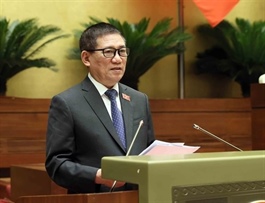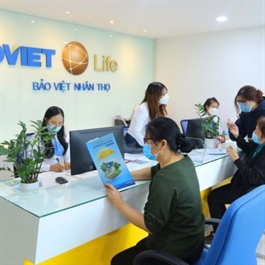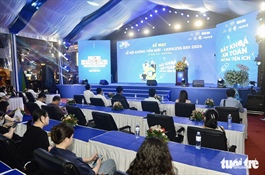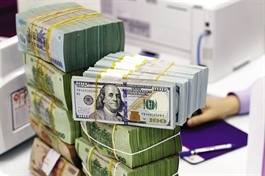Banks limits foreign room, waiting for strategic buyers
Banks limits foreign room, waiting for strategic buyers
Commercial banks have been holding back on increasing their foreign ownership ratio, or foreign room, to wait for suitable strategic buyers in the future, according to industry leaders and insiders.
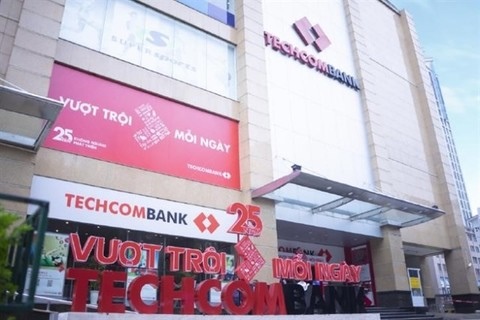
A Techcombank office building in HCM City. — VNA/VNS Photo |
Chairman of Techcombank, one of Việt Nam's largest commercial joint stocj banks, said the bank's current foreign room is 22 per cent, allowing it to sell as much as 10 per cent to potential strategic shareholders. The bank has also been considering issuing additional shares to strategic shareholders, which typically results in a positive move in terms of stock prices.
Techcombank said it has been on the lookout for deals such as last year's VPBank's sale to Japanese Sumitomo Mitsui Banking Corporation (SMBC), as market conditions have been improving. VPBank has just completed a private placement of 15 per cent with the Japanese bank. The transaction was valued at VNĐ35.9 trillion, or US$1.5 billion.
Việt Nam's banking sector has seen significant inflows of foreign capital worth billions of dollars, opening many doors to capital, technology and management streamlining.
HDBank recently announced its intention to maintain its current foreign room at 17.5 per cent, hoping to find strategic shareholders.
According to a letter published by HDBank to ensure compliance with regulations and meeting the investment needs of foreign shareholders, the bank proposed to its shareholders at the AGM they should adjust the foreign ownership ratio to 17.5 per cent, down from the current 20 per cent.
HDBank remains one of the few major banks yet to choose a foreign strategic shareholder. The bank has shown promising and steady growth in the last ten years, especially in digital banking, consumer finance, insurance, investment banking, securities and rural banking.
Hoàng Thanh Tùng, director of investor relations at HDBank, said the bank has been preparing strategic partnerships by reserving 10 per cent of its foreign room. Sales to strategic investors, however, should only take place once market conditions improve, he said, adding that HDBank has received interest from several foreign partners from South Korea, Europe and the US.
SHB Chairman Đỗ Quang Hiển told a shareholder meeting that the bank is to complete the offering of shares to foreign investors in 2024. Last year, its shareholders approved the continuation of capital increase through the issuance of shares to foreign investors and strategic foreign investors.
Reuters has reported that SHB was in negotiations to sell 20 per cent of its capital after foreign investors from South Korea and Japan approached the bank, which was valued at $2-2.2 billion. A source close to the talks said the deal was expected to go through this year once the State Bank of Vietnam gives the green light.
Similarly, SeABank approved a plan to privately issue a maximum of 94.6 million shares, equivalent to 4.6366 per cent of its total shares to Norfund, the Norwegian Investment Fund for Developing Countries, which could add VNĐ1.2-3.5 trillion to the bank's coffers.
Nguyễn Quốc Hùng, secretary-general of the Vietnam Banks Association, said taking in strategic foreign investors has often produced positive changes in finance, technology, management and operations at credit institutions, bringing them closer to international practices and standards.





